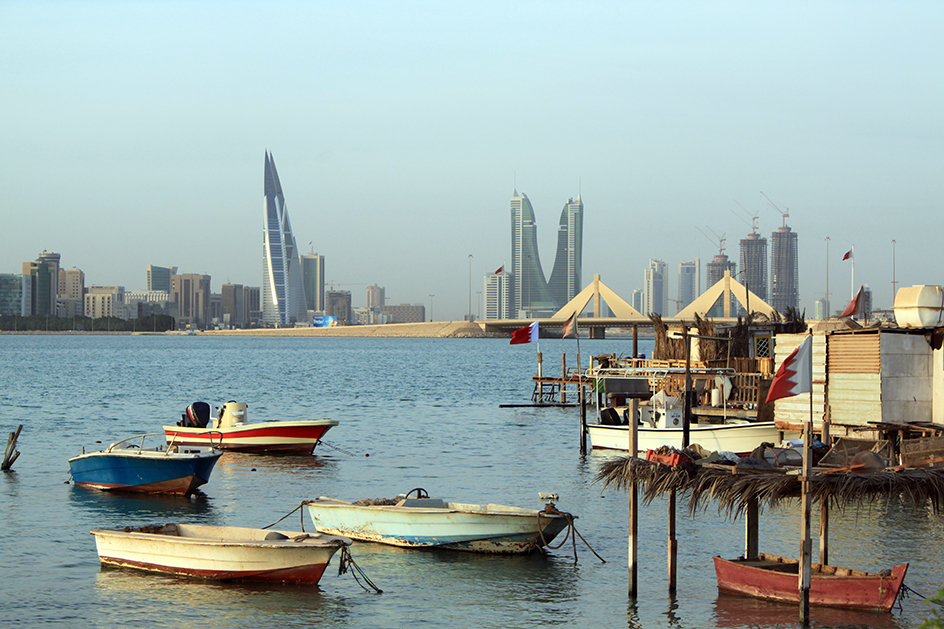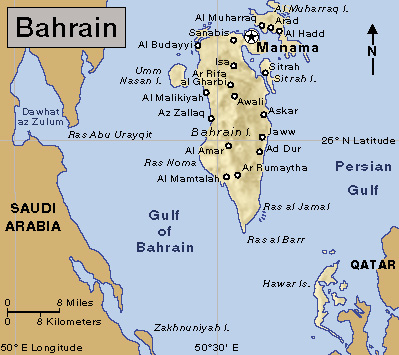Manama, << muh NAM uh >> (pop. 200,000), is the capital, largest city, and chief port of Bahrain, an island nation in the Arabian Gulf (commonly called the Persian Gulf in non-Arab countries). Manama lies on the northern tip of the country’s main island, which is also called Bahrain (see Bahrain ).

Manama was probably founded in the 1300’s. It became an important port, largely because it lies along major trade routes. Manama’s economy depended on fishing, pearling, and boatbuilding until the discovery of oil deposits in Bahrain in 1932. Today, the city is a center of trade, finance, and shipping for the Arabian Gulf region. It has numerous warehouses, banks, and stores, as well as modern hotels and government offices. About 10 percent of Bahrain’s people live in Manama.
In 1962, the government of Bahrain opened a new harbor for Manama. This harbor can handle modern ocean vessels. The United States Navy’s Fifth Fleet has its headquarters there. From this strategic location, the Navy monitors the Arabian Gulf, Red Sea, Gulf of Oman, and parts of the Indian Ocean.

Manama’s Ahmed Al Fateh Mosque is one of the largest mosques in the world, capable of holding more than 7,000 worshipers at a time. The ancient ruins of Qal`at al-Bahrain stand just outside Manama. Qal’`at al-Bahrain was the capital of the Dilmun Empire, one of the most important ancient civilizations of the region. The site also contains the restored ruins of the Fort of Bahrain, first constructed in the early 1400’s. Qal`at al-Bahrain is a World Heritage Site (see World Heritage List ). The United Nations Educational, Scientific and Cultural Organization (UNESCO) designates such sites as places of unique cultural or natural importance.
In 2011, Pearl Square became the scene of large antigovernment protests. Encounters between protesters and Bahraini security forces sometimes turned violent. The protesters called for the removal of the king, Sheikh Hamad Bin Isa Al Khalifa. The protests followed similar demonstrations demanding more democratic government in Tunisia, Egypt, and elsewhere in the region. In January 2012, the king announced constitutional reforms. Protests continued, however, and the Bahraini government announced a ban on the demonstrations.
See also Pearl Square.
